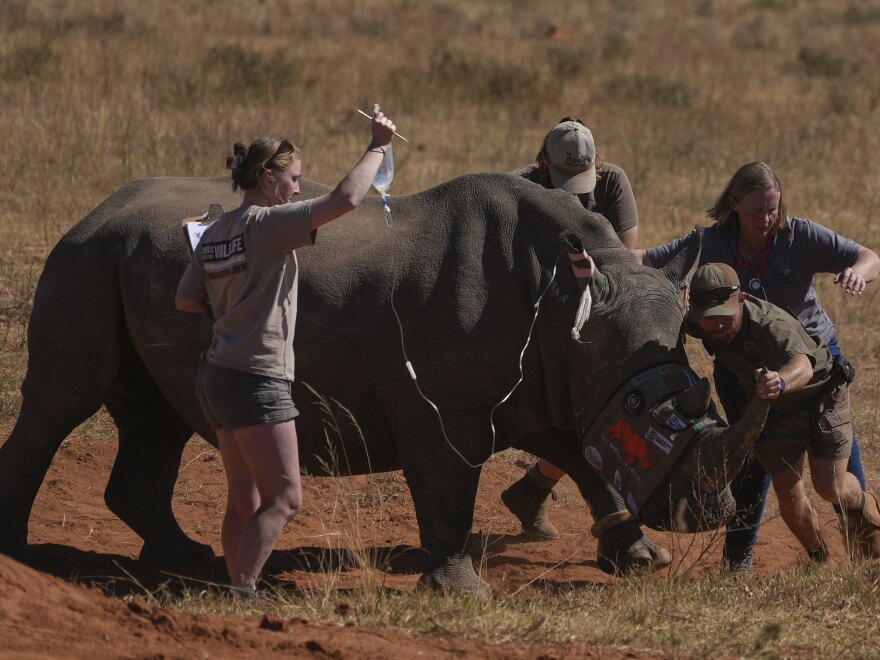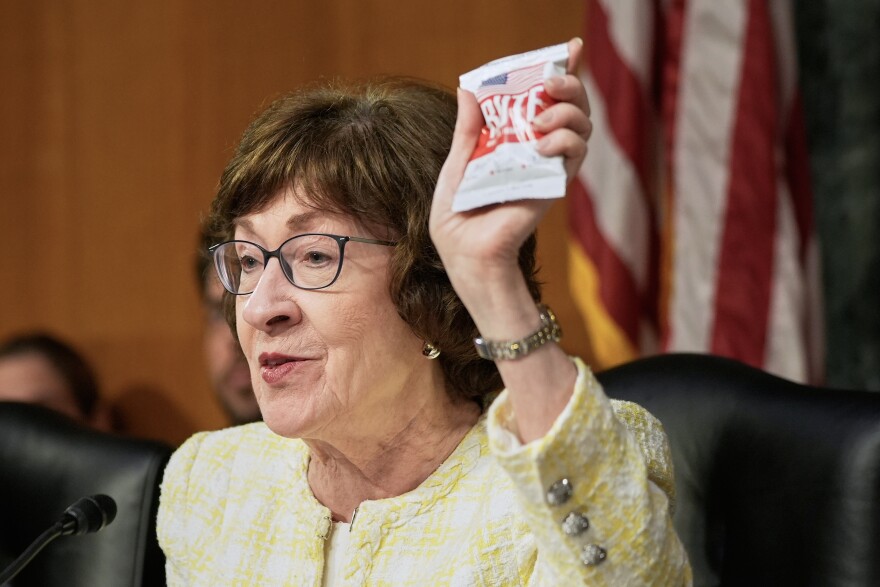South Africa’s MOKOPANE (AP) On Thursday, a South African university began an anti-poaching effort by injecting rhino horns with radioactive isotopes that, according to the institution, are safe for the animals but can be identified by customs officials.
In what the university believes will be the first of many injections of the dwindling rhino population, five rhinos were injected as part of a joint project comprising the University of the Witwatersrand, nuclear energy officials, and conservationists.
The Rhisotope Project is the name given to it.
Trials that preceded Thursday’s launch involved injecting isotopes into roughly 20 rhinos at a refuge last year. Poachers and traffickers can be apprehended because radiation detectors at borders and airports can identify radioactive isotopes, even at low concentrations.
Tests carried out in the pilot study verified that the radioactive substance was not dangerous to the rhinos, according to researchers from Witwatersrand’s Radiation and Health Physics Unit.
James Larkin, chief scientific officer of the Rhisotope Project, stated, “We have proven, beyond scientific doubt, that the process is completely safe for the animal and effective in making the horn detectable through international customs nuclear security systems.”
“Even a single horn with significantly lower levels of radioactivity than what will be used in practice successfully triggered alarms in radiation detectors,” Larkin stated.
According to him, the tests also revealed that horns may be found within 40-foot shipping containers.
Due to the ongoing demand for rhino horns on the illegal market, the number of rhinos worldwide has decreased to about 27,000 from an estimated 500,000 at the start of the 20th century, according to the International Union for Conservation of Nature.
Although there are an estimated 16,000 rhinos in South Africa, the country has a high rate of poaching, with over 500 rhinos slaughtered annually for their horns.
National conservation authorities and owners of private wildlife parks have been asked by the university to get their rhinos inoculated.
Copyright 2025 NPR





